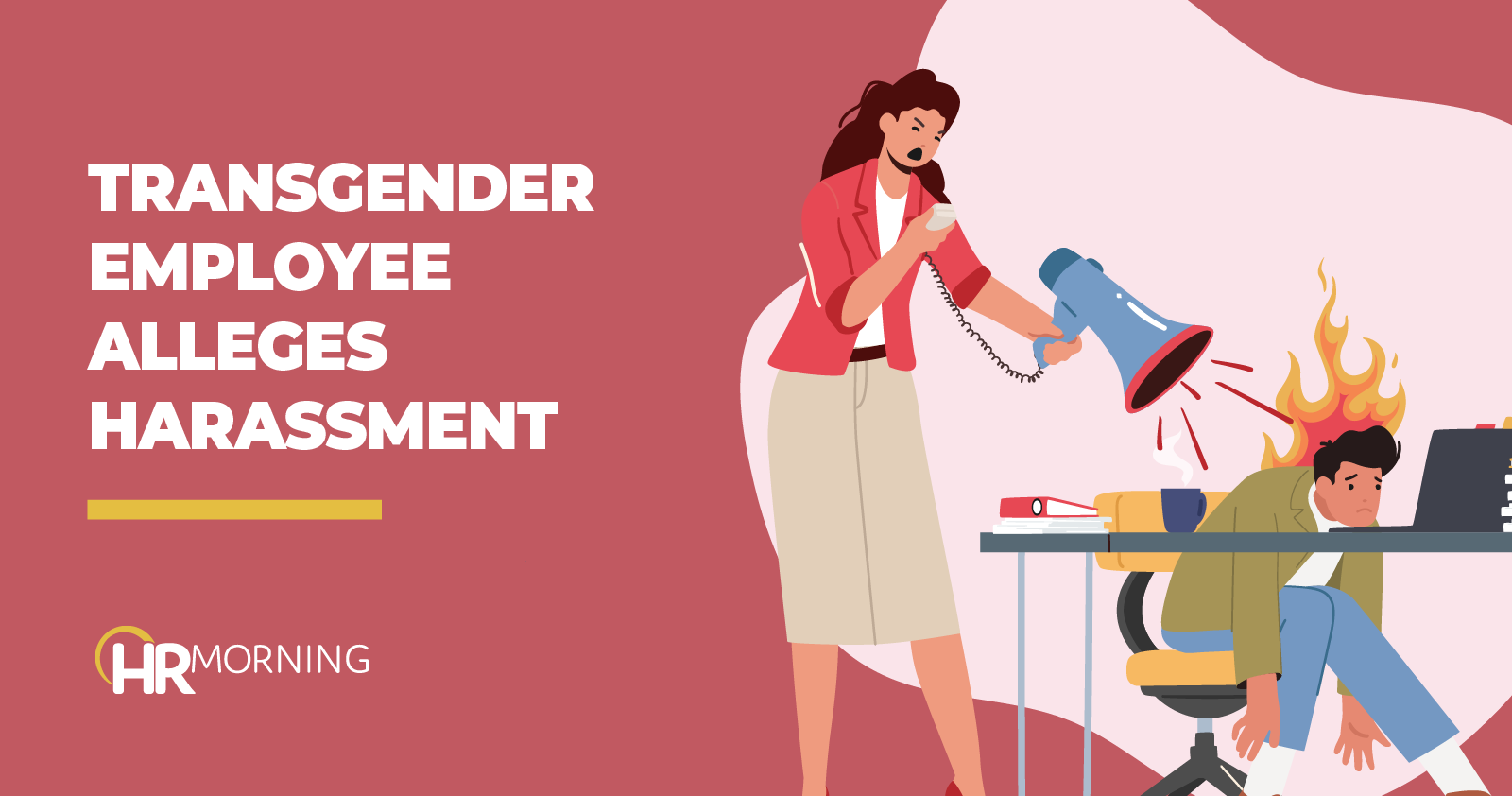A federal appeals court has revived a prison employee’s Title VII claim that he was subjected to severe harassment at work based on his status as a transgender man.
While working at Rogers State Prison in Georgia, Tyler Copeland began the process of medically and socially transitioning from female to male.
The court’s ruling in the case says that Copeland’s decision to live openly as a man “required him to disclose his gender identity at work.”
Copeland says that when he met with an HR employee at the prison about the transition, the employee told him the paperwork he submitted was insufficient and that he would need to provide a birth certificate that showed the change from female to male. Copeland then changed his birth certificate and provided it to the prison.
An HR employee then allegedly told Copeland to hold off on disclosing his transition until after he met with the department director.
Transgender employee alleges harassment
The director allegedly called Copeland and asked if he had “had the surgery.” At follow-up, in-person meetings, the director allegedly told Copeland not to use the men’s bathroom and told prison staffers about Copeland’s transgender status. Staffers were told to refer to Copeland using either male pronouns or “Sergeant Copeland,” which was his title.
Copeland says he then experienced workplace harassment every day for more than a year.
Among other things, he alleged that:
- Supervisors and subordinates ended radio transmissions, which were heard by all employees, by calling him “ma’am”
- Co-workers called him “that” and “it”
- His supervisor called him “baby girl”
- Cafeteria members joked about transgender people in front of inmates
- A nurse said she would not call him “sir” because “that wasn’t who [he] was”
- Supervisors commented on his gender in front of subordinates.
Employee said he was challenged to fight
Copeland further alleged that another officer challenged him to a fight, blocked his path and pushed him. Copeland said that one time when he was walking to his car, the same officer circled him in a vehicle while carrying a gun.
In an effort to stop the alleged harassment, Copeland spoke directly with alleged offenders and reported his concerns to HR and supervisors. He also says he contacted the prison’s Employee Assistance Program but never heard back from it.
In fact, “he raised his concerns to Rogers’ entire chain of command,” the decision says. Despite his efforts, the harassment based on transgender status did not abate, he alleges.
He further alleged that he faced insubordination, was reassigned to undesirable shifts, and was denied promotions.
Copeland was promoted after filing an EEOC charge of discrimination. He eventually sued, alleging three claims under Title VII:
- Hostile work environment based on transgender status
- Denial of promotion based on transgender status
- Retaliation for opposing sex discrimination.
Lower court rules for prison
A lower court granted summary judgment for the prison. It said that Copeland did not show he suffered severe or pervasive harassment or that there was a causal connection between his protected activity and the prison’s decision not to promote him.
Copeland sought review from the Eleventh Circuit Court of Appeals.
It explained that to win on this claim, Copeland had to show:
- He belongs to a protected group
- He was subjected to unwelcome harassment
- The harassment was based on a characteristic that is protected by law
- The harassment was severe or pervasive enough to alter his conditions of employment
- The prison was responsible for the hostile work environment.
The only element in dispute, the appeals court explained, was the fourth one: whether Copeland was subjected to harassment that was severe or pervasive.
To establish that element, Copeland had to subjectively perceive his work environment as abusive and show that a reasonable person in his position would do the same.
Appeals court looks at factors
In determining whether the latter requirement was met, the court considered the alleged harassment’s frequency and severity as well as whether it was physically threatening or humiliating and whether it unreasonably interfered with Copeland’s job performance.
The court found that crediting Copeland’s allegations, a jury could find that the harassment was frequent and severe; that it was threatening and humiliating; and that it unreasonably interfered with his work.
For that reason, it ruled that the lower court mistakenly granted summary judgment to the prison on Copeland’s Title VII claim of hostile environment.
It vacated the lower court’s decision to grant the prison summary judgment on that claim and otherwise upheld the lower court’s decision.
Suit paints ugly picture
The allegations presented paint a picture of a classic case of illegal harassment – based not only on the alleged harassing conduct but also on the employer’s utter failure to adequately respond to repeated complaints of harassing behavior.
Remember: Whenever an employee presents allegations of harassment based on a protected characteristic (including transgender status), employers must quickly investigate and take prompt remedial action if it is warranted.
Copeland v. Georgia Dep’t of Corrections, No. 22-13073 (11th Cir. 3/28/24).


